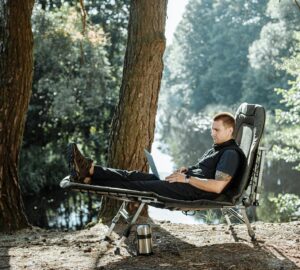Writing can be tedious and a little depressing at times. Here’s how you can overcome these problems.
BY ANYA VILJOEN
In many ways writing is one of the hardest things I’ve ever committed to. There is no one telling me what to write; I have to come up with unique and creative topics even when I’m not feeling unique or creative. This makes this line of work time-consuming and often emotionally draining, with little reward – especially at the beginning of a career when you’re still building a name for yourself.
It’s important to keep in mind that I work for myself and I’m only going to progress if I’m dedicated to the trade. How can we as writers find ways to make this a little easier?
I have found two resources in the past year that have been a well of sage advice.
Detach Yourself from Your Work
I recently read and then reread a book by Elizabeth Gilbert called Big Magic. It completely changed the way I viewed the creative process and has been an insurmountable source of comfort to me. The book speaks about overcoming the fear of rejection as a writer and separating ourselves from the ‘creative’ so that, regardless of the reaction, we don’t take credit for it.
Watch a clip about Elizabeth Gilbert talk about creativity here.
Collect Your Runaway Thoughts
Recently I discovered a blog by author and public speaker, Tim Ferriss. He talks a lot about experiencing writers’ block and writing ‘morning papers‘. I struggle with this on a daily basis but I can overcome it slightly when I write morning pages.
Morning pages or stream of consciousness writing is a well-known practice that encourages sitting down first thing in the morning and writing whatever comes to mind for a while. Being dedicated to this practice makes the benefits huge, as I have noticed myself.
This is a quote by Tim Ferriss and it is the perfect explanation of how morning pages help my day: “I’m just caging my monkey mind on paper so I can get on with my day.”
My Writing Method
I’ve adopted a method where I write whatever comes to mind about a chosen topic. I use this every time I’m starting a new piece. It gets the ball rolling so to speak and within an hour or so I’m always over the word count.
It is at this point that I leave the piece for a bit.
My advice is to go out and do something active and try not to focus on it for a while. When you return later, the metaphorical ‘dough’ has risen and it becomes easier to see the weak points and gaps in the article. This is when I edit, proof read and get others’ opinions before submitting.
This process makes the writing significantly less stressful. However, I always take into consideration that I do not have the luxury of leaving a topic to brew for too long. The digital age that we live in is incredibly connected and useful at times, but when it comes to a unique angle, time is of the essence as there are thousands of other hungry writers tapping madly at their keyboards.
Finding Your Method (in the Madness)
Don’t sit around waiting for inspiration to strike or an opportunity to present itself. I’ve learnt through experience that this doesn’t lead to success.
The trick to writing is to find your groove; find what makes you excited as you try to create meaningful content. Then jump onto an idea and get it out there on the big wide web.
About the Author

In her free time you can find her cooking new food, doing yoga or reading a good book. She also has a minor obsession with cats.















